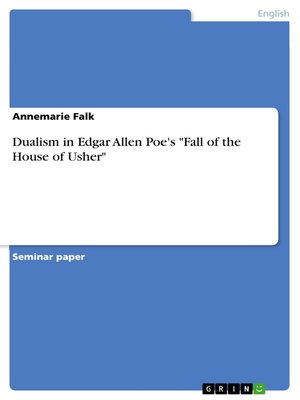
Sign up to save your library
With an OverDrive account, you can save your favorite libraries for at-a-glance information about availability. Find out more about OverDrive accounts.
Find this title in Libby, the library reading app by OverDrive.



Search for a digital library with this title
Title found at these libraries:
| Library Name | Distance |
|---|---|
| Loading... |
Seminar paper from the year 2013 in the subject American Studies - Literature, grade: 1,7, Johannes Gutenberg University Mainz, language: English, abstract: In 19th century literature, whether it be prose or poetry, there is a central idea, a certain motif that can be found in many works - the concept of dualism. Many Victorians believed that there was an essential duality of life that was not only found in nature, but also constituted the very, dual nature of mankind. This concept has long before been discussed by the French philosopher and mathematician René Descartes who coined the term "Cartesian Dualism", which approaches the idea that the self is divided into body and mind and that the two, while always conflicting, are intimately related (Skirry). In terms of literature, this conflict and idea of fragmentation of the human mind was often "expressed with the character's self-division or selfduplication" (Krehl 1).







